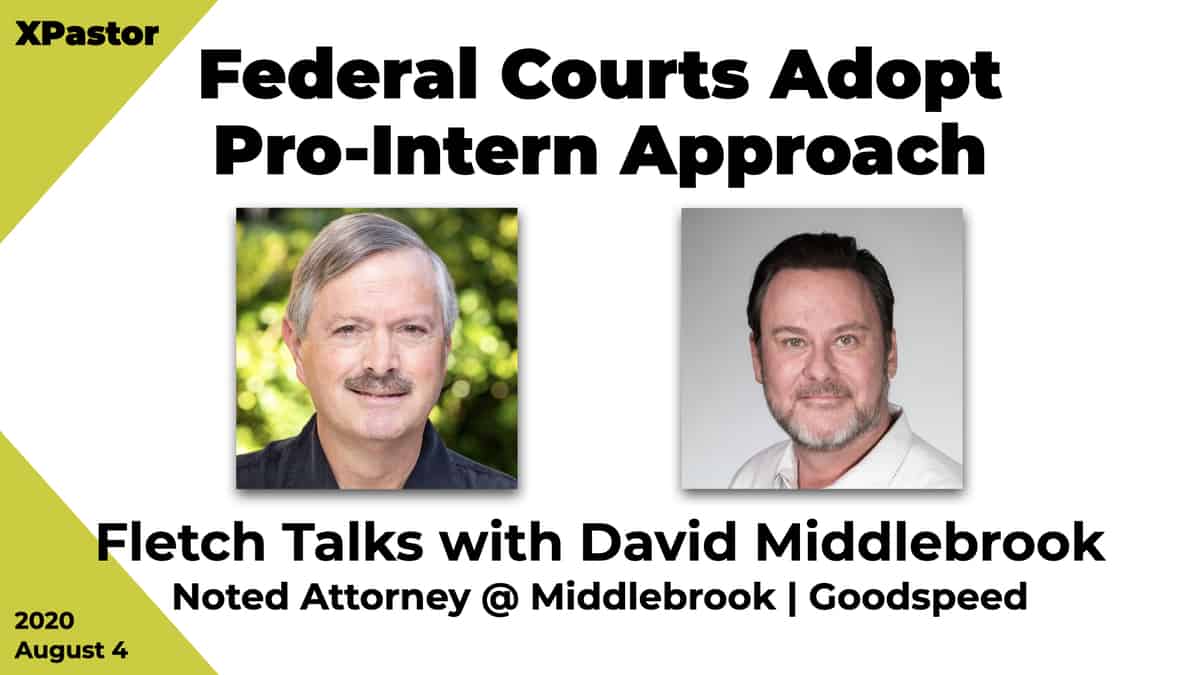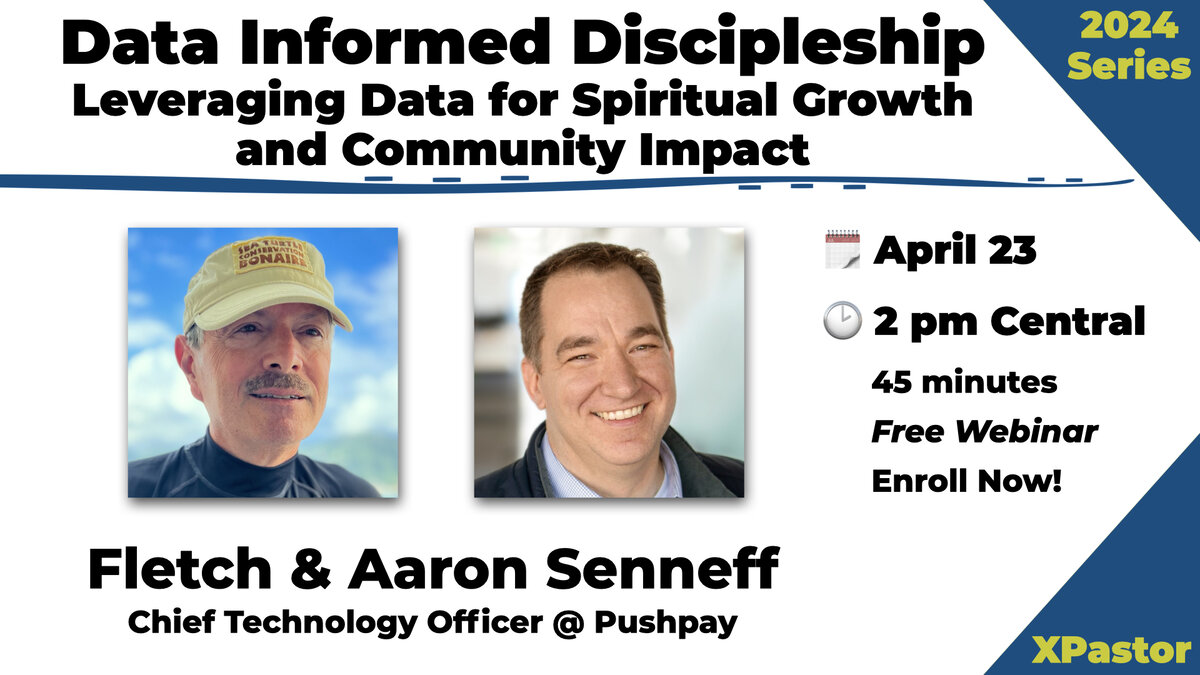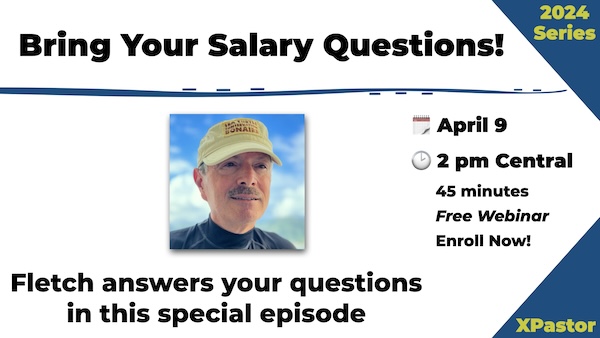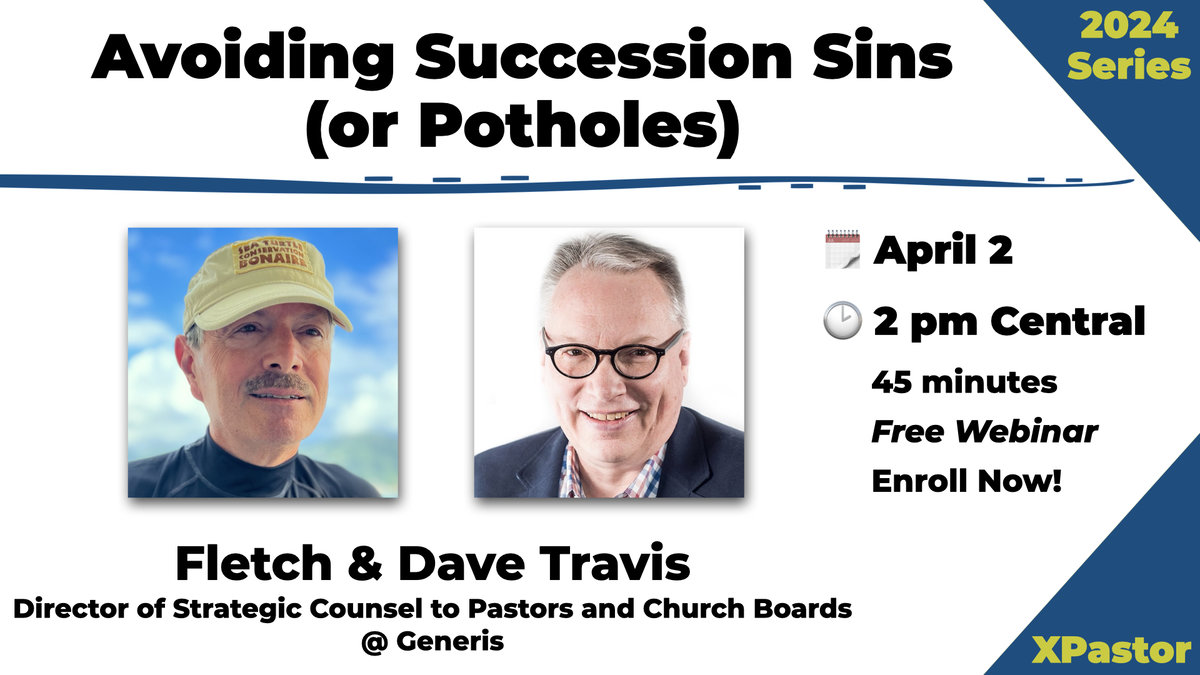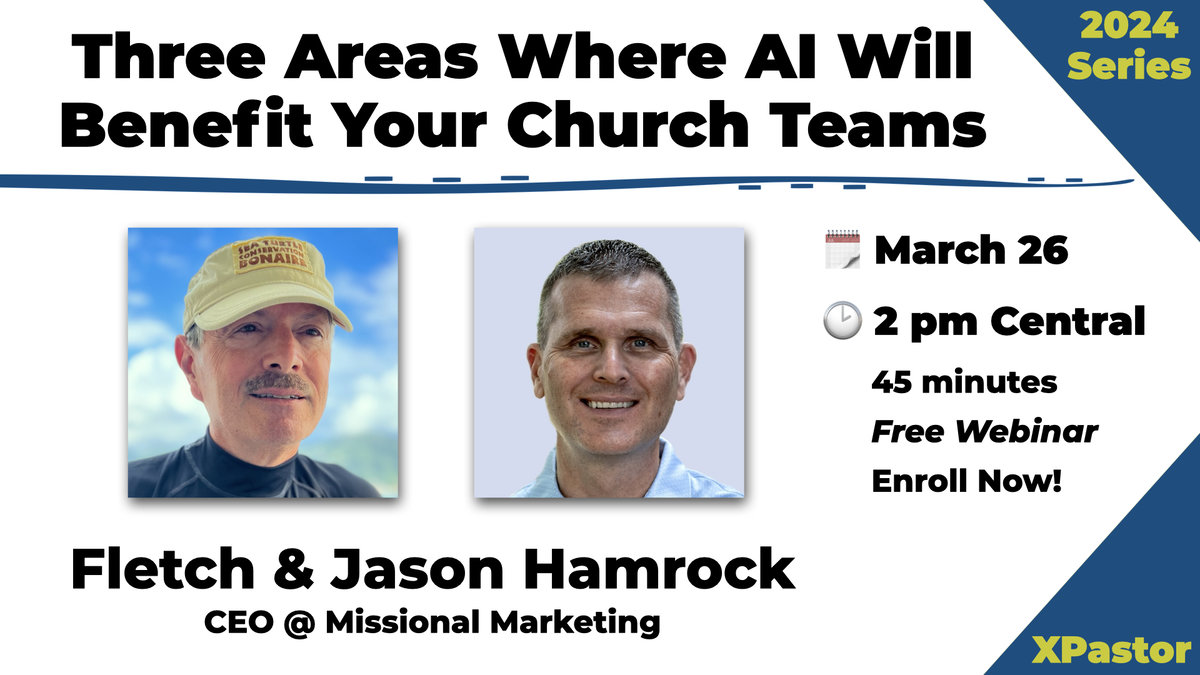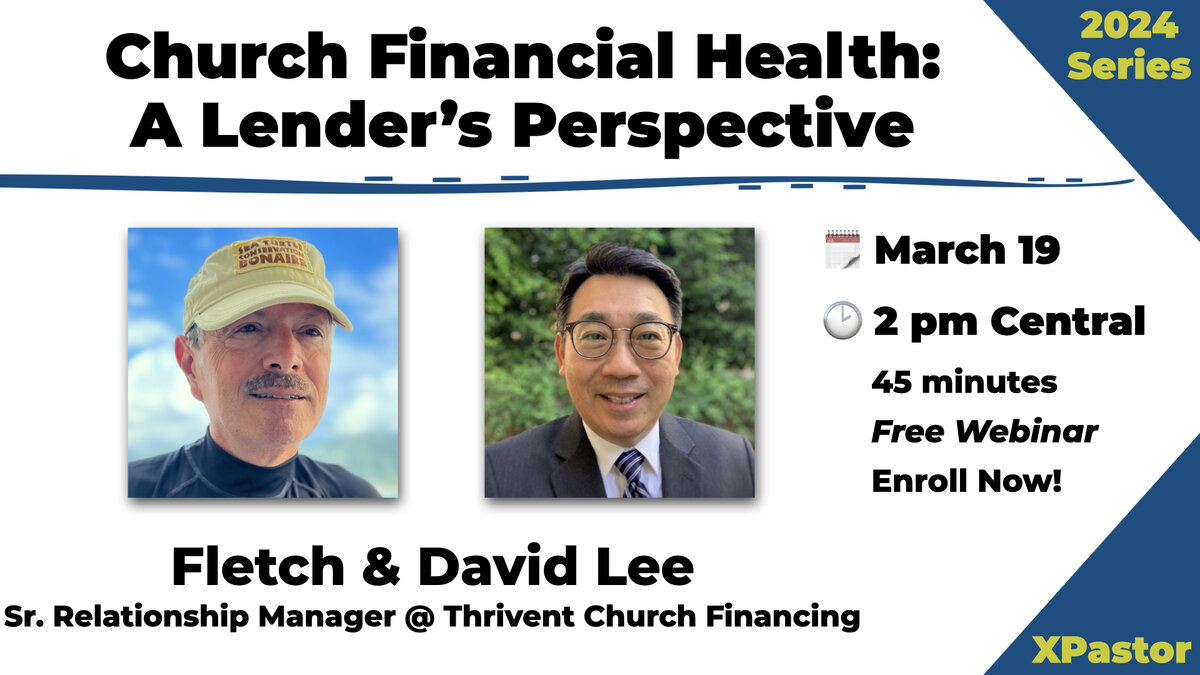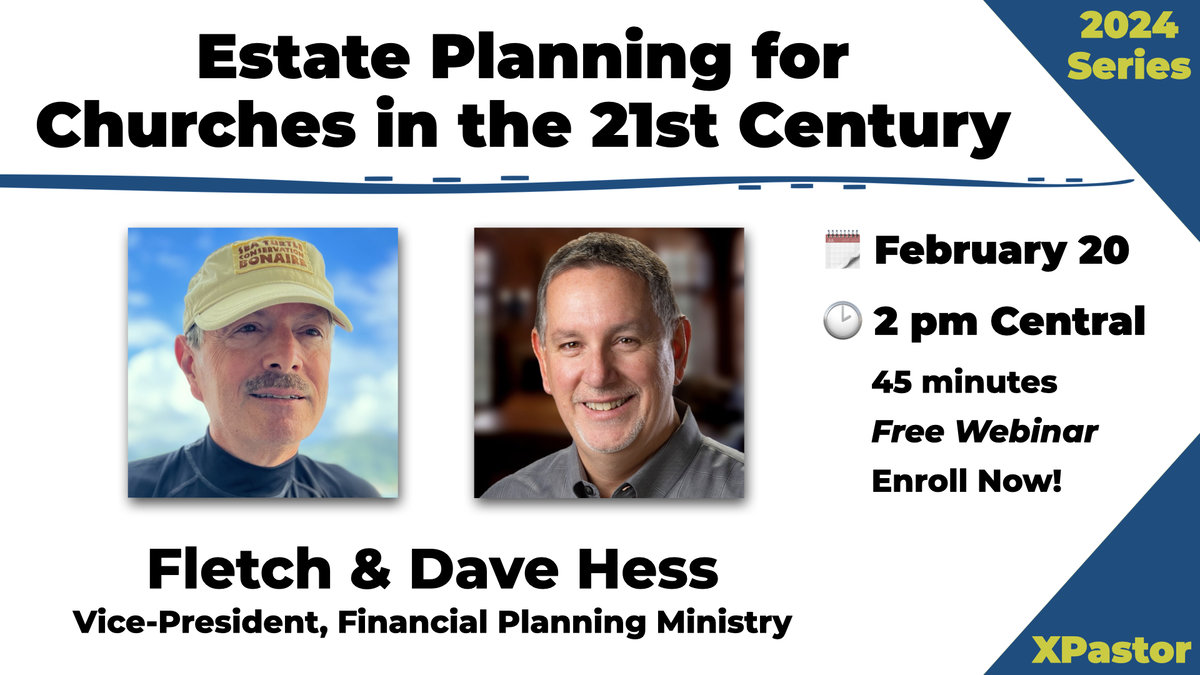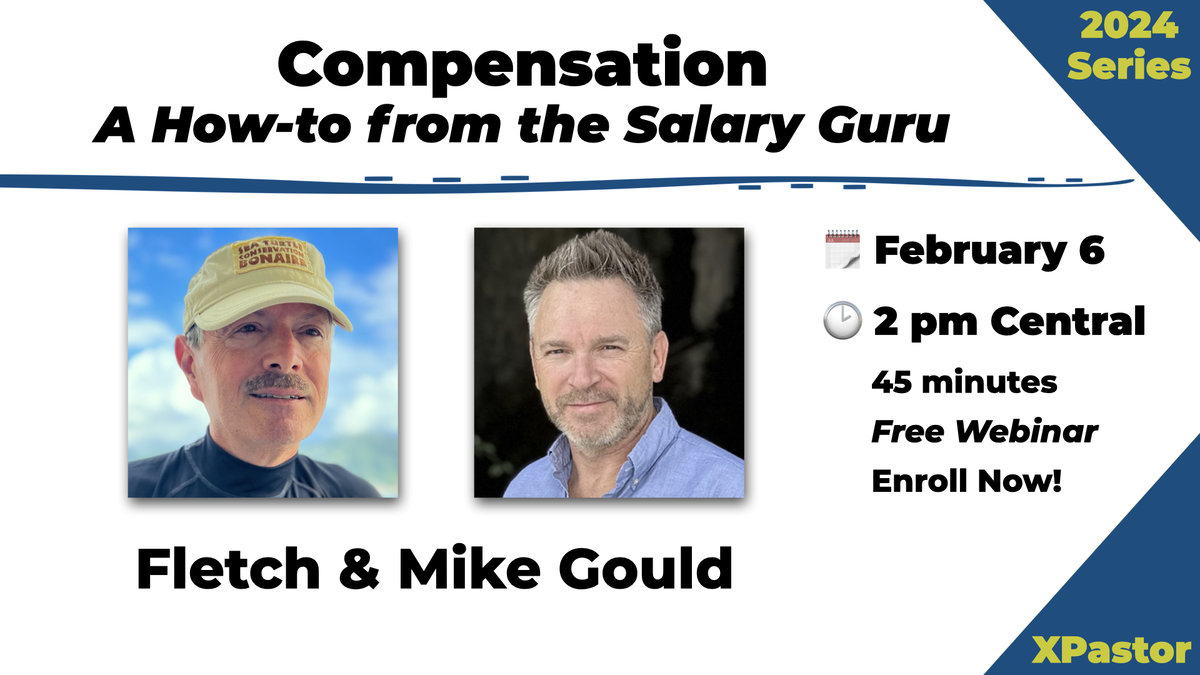Whether to pay interns or not has been a sticky subject for a long time. Do you know about the recent decisions from federal appellate courts that have adopted a more flexible, pro-internship approach? This impacts the policies of the U.S. Department of Labor. You need this information to update your intern policies.
Fletch and David Middlebrook, noted attorney with Middlebrook | Goodspeed, will look at the question: Are your ministry unpaid interns actually employees who are entitled to pay? Now is a great time to consider developing or updating your internship program in light of the most recent guidance.
Bring your questions! Join us to discuss some of the relevant changes and how they may benefit your church or ministry, as well as tips for ensuring any current internship programs are properly structured.
Slide deck
Documents from Middlebrook | Middlebrook
In the webinar, a question came about applications and checklists for interns. Dave was so kind as to offer to make these documents available. Thanks to Steven Goodspeed, of Middlebrook | Goodspeed, who sent these to XPastor. The “Unpaid Internship Checklist” is in PDF format. The “Internship Application” is in Word, Apple Pages and PDF formats. Enjoy and many thanks to our friends at Middlebrook | Goodspeed.
Department of Labor, Wage and Hour Division
Updated January 2018
This fact sheet provides general information to help determine whether interns and students working for “for-profit” employers are entitled to minimum wages and overtime pay under the Fair Labor Standards Act (FLSA).
Background
The FLSA requires “for-profit” employers to pay employees for their work. Interns and students, however, may not be “employees” under the FLSA—in which case the FLSA does not require compensation for their work.
The Test for Unpaid Interns and Students
Courts have used the “primary beneficiary test” to determine whether an intern or student is, in fact, an employee under the FLSA.2 In short, this test allows courts to examine the “economic reality” of the intern-employer relationship to determine which party is the “primary beneficiary” of the relationship. Courts have identified the following seven factors as part of the test:
- The extent to which the intern and the employer clearly understand that there is no expectation of compensation. Any promise of compensation, express or implied, suggests that the intern is an employee—and vice versa.
- The extent to which the internship provides training that would be similar to that which would be given in an educational environment, including the clinical and other hands-on training provided by educational institutions.
- The extent to which the internship is tied to the intern’s formal education program by integrated coursework or the receipt of academic credit.
- The extent to which the internship accommodates the intern’s academic commitments by corresponding to the academic calendar.
- The extent to which the internship’s duration is limited to the period in which the internship provides the intern with beneficial learning.
- The extent to which the intern’s work complements, rather than displaces, the work of paid employees while providing significant educational benefits to the intern.
- The extent to which the intern and the employer understand that the internship is conducted without entitlement to a paid job at the conclusion of the internship.
Courts have described the “primary beneficiary test” as a flexible test, and no single factor is determinative. Accordingly, whether an intern or student is an employee under the FLSA necessarily depends on the unique circumstances of each case.
If analysis of these circumstances reveals that an intern or student is actually an employee, then he or she is entitled to both minimum wage and overtime pay under the FLSA. On the other hand, if the analysis confirms that the intern or student is not an employee, then he or she is not entitled to either minimum wage or overtime pay under the FLSA.
David Middlebrook is one of the country’s leading practitioners in the area of religious nonprofit organizations. His clients include high-profile charitable and religious organizations, both domestic and international. David has an in-depth knowledge of risk management for charities, religious organizations, private schools, and universities.
David advises his clients on a wide range of legal issues including corporate structure and governance, employment and volunteer practices, intellectual property, and compensation practices. He serves as outside general counsel to a number of nonprofit organizations, while many others use his services as special nonprofit corporate counsel. David also serves his clients in the role of literary and music agent and is a frequent speaker at conferences and seminars on legal subjects affecting religious nonprofit organizations. He is an award-winning author and has published numerous articles on nonprofit topics. David is a founding shareholder of Middlebrook | Goodspeed, PLLC.

